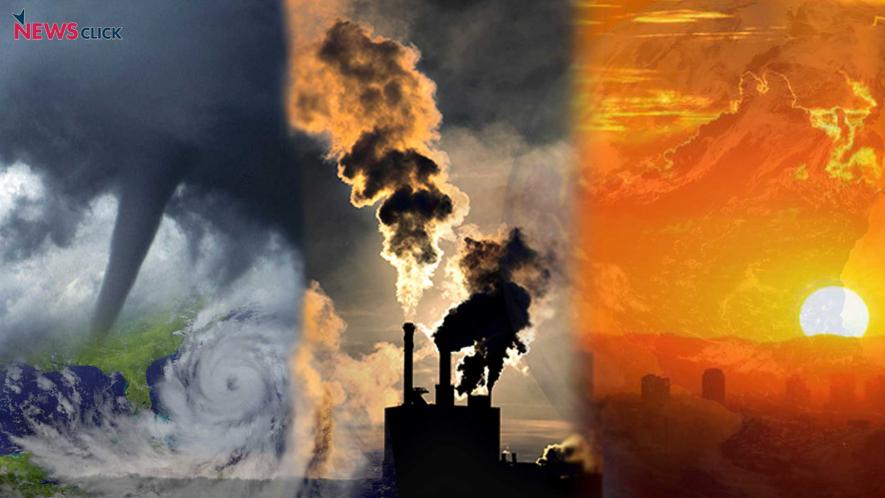India and Pakistan to Suffer Extreme Heat Waves Every Three Years due to Climate Change, Study Predicts

Representational use only.
The Meteorological (Met) Office found that northwest India and Pakistan are 100 times more likely to experience extreme heat waves. In an attribution study produced this week, the Met Office estimated these regions' chances of experiencing record-breaking temperatures seen in April and May of 2010, which recorded the highest combined average temperature in April and May since 1900.
The attribution study produced a worrisome result that northwest India and Pakistan are most likely to experience extreme temperatures every 3.1 years, attributable to climate change. Considering the climate change projections, the study predicts that these regions have a high chance of extreme heat once every 1.15 years towards the end of this century.
An attribution study in the field of climate study attempts to determine the severity or likelihood of an event happening today compared to how it would have been in a world that is not warmed due to human activities. Such studies are done with the help of computer simulations in two situations. In one scenario, the climate is modelled as it is today. In the other, it removes the human influences on climate, such as greenhouse gases and other drivers of warming and climate change.
The UK Met Office study also says that India's and Pakistan's likelihood of having extreme heat waves would be once every 312 years without climate change. It shows how faster the extreme events are coming amidst climate change. The forecast says that northwest India could see new highs in temperature in the coming days.
Professor Peter Stott, a Met Office Science Fellow in Climate Attribution, commenting on the findings, said, "With temperatures exceeding 50.0°C in recent days, the current heat wave is an extreme weather event affecting communities and livelihoods."
The study predicted a new record to be set in these regions. However, the scientists will have to wait till the end of this month as all the temperature records for April and May will be collated. Then only it will be certain if the temperatures have exceeded the levels seen in 2010.
Dr Nikos Christidis, who produced the Met Office attribution study, commented, "Spells of heat have always been a feature of the region's pre-monsoon climate during April and May. However, our study shows that climate change is driving the heat intensity of these spells making record-breaking temperatures 100 times more likely. By the end of the century, increasing climate change is likely to drive temperatures of these values on average every year."
Notably, the temperature reached as high as 51 degrees Celsius in Pakistan on Sunday. However, it has gone down a little bit. But, the heat wave seems to be likely to soar again from the middle of this week and again touch a high towards the weekend, and in some places, it may again touch the 50-degree mark— the Met Office forecasted. The extreme heat also brings in a high chance of wildfires, thus further degrading the air quality.
Similarly, in Delhi, the temperature went up to just below the 50-degree mark and stayed at 49 degrees Celsius. Certain areas of Delhi like Najafgarh recorded over 49 degrees this weekend. The Indian Met Department has forecasted (May 18) some respite from the heat in the coming weekend. However, it also says that till May 20, there will be heat waves in Delhi, Punjab, Haryana and other parts of northwest India.
Get the latest reports & analysis with people's perspective on Protests, movements & deep analytical videos, discussions of the current affairs in your Telegram app. Subscribe to NewsClick's Telegram channel & get Real-Time updates on stories, as they get published on our website.














